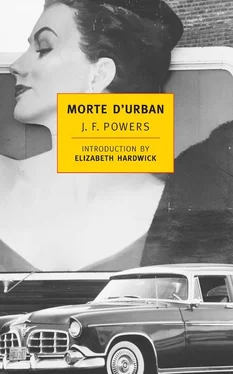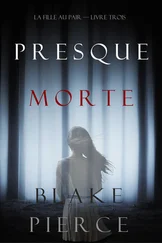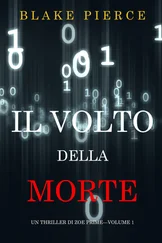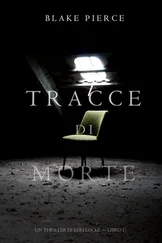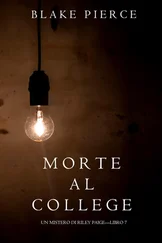J. Powers - Morte D'Urban
Здесь есть возможность читать онлайн «J. Powers - Morte D'Urban» весь текст электронной книги совершенно бесплатно (целиком полную версию без сокращений). В некоторых случаях можно слушать аудио, скачать через торрент в формате fb2 и присутствует краткое содержание. Год выпуска: 2000, Издательство: NYRB Classics, Жанр: Современная проза, на английском языке. Описание произведения, (предисловие) а так же отзывы посетителей доступны на портале библиотеки ЛибКат.
- Название:Morte D'Urban
- Автор:
- Издательство:NYRB Classics
- Жанр:
- Год:2000
- ISBN:нет данных
- Рейтинг книги:5 / 5. Голосов: 1
-
Избранное:Добавить в избранное
- Отзывы:
-
Ваша оценка:
- 100
- 1
- 2
- 3
- 4
- 5
Morte D'Urban: краткое содержание, описание и аннотация
Предлагаем к чтению аннотацию, описание, краткое содержание или предисловие (зависит от того, что написал сам автор книги «Morte D'Urban»). Если вы не нашли необходимую информацию о книге — напишите в комментариях, мы постараемся отыскать её.
The hero of J.F. Powers's comic masterpiece is Father Urban, a man of the cloth who is also a man of the world. Charming, with an expansive vision of the spiritual life and a high tolerance for moral ambiguity, Urban enjoys a national reputation as a speaker on the religious circuit and has big plans for the future. But then the provincial head of his dowdy religious order banishes him to a retreat house in the Minnesota hinterlands. Father Urban soon bounces back, carrying God's word with undaunted enthusiasm through the golf courses, fishing lodges, and backyard barbecues of his new turf. Yet even as he triumphs his tribulations mount, and in the end his greatest success proves a setback from which he cannot recover.
First published in 1962,
has been praised by writers as various as Gore Vidal, William Gass, Mary Gordon, and Philip Roth. This beautifully observed, often hilarious tale of a most unlikely Knight of Faith is among the finest achievements of an author whose singular vision assures him a permanent place in American literature.
Morte D'Urban — читать онлайн бесплатно полную книгу (весь текст) целиком
Ниже представлен текст книги, разбитый по страницам. Система сохранения места последней прочитанной страницы, позволяет с удобством читать онлайн бесплатно книгу «Morte D'Urban», без необходимости каждый раз заново искать на чём Вы остановились. Поставьте закладку, и сможете в любой момент перейти на страницу, на которой закончили чтение.
Интервал:
Закладка:
RECTOR: How do you mean?
FR URBAN: Well, didn’t he write a letter or something?
RECTOR: No. To tell you the truth, Father, I think the Bishop had other plans for us here — in case we didn’t make a go of this, I mean. When I saw him last spring—
FR URBAN: You haven’t seen him since then?
RECTOR: Father Provincial saw him, and then, some months later, I saw him. He spoke then of the need for a seminary — diocesan, of course. He only mentioned it in passing, and I’m glad he didn’t make it any stronger than that. As you know, our experience in co-operative ventures hasn’t always been good.
FR JOHN: Bolivar Springs.
RECTOR: With the clergy shortage there is in this diocese, it might be some time before the Bishop would be in a position to operate his own seminary, but it wouldn’t be long before he’d want a man or two on the staff. We all know that’s the beginning of the end.
FR JOHN: Bolivar Springs.
FR URBAN: Well, I must say it’s no mystery to me — why you aren’t getting local support.
RECTOR: I’ve never thought of it as much of a mystery. Even the Jesuits had their troubles before they got established in Minnesota. Frankly, I wish they’d had a few more. They’re drawing from our territory, and the Benedictines are almost as bad.
FR URBAN: You have to expect that.
RECTOR: Look at it like this. In cities we have boundaries to keep people from attending the church of their choice. Well, I say we need boundaries to keep them from making retreats outside their own diocese — unless, of course, proper facilities are lacking within it. Otherwise, the little fella gets squeezed out. He might as well close up shop.
FR URBAN: Unless the Bishop’s behind you in any diocese, you might as well close up shop.
RECTOR: I think we can say that Bishop Conor’s behind us.
FR URBAN: Dragging his feet.
RECTOR: No, watching and waiting. If we really make a go of it here, you’ll see a big change in him. After all, if he weren’t behind us, we wouldn’t be here. You mustn’t forget that. We’re still in the making-friends stage. That’s all. The Bishop’s well aware of the work we’re doing in parishes.
FR URBAN: He should be.
RECTOR: We’ve had our largest groups from parishes where we help out on weekends. So, you see, it works both ways. Once off the ground, we should be self-supporting.
FR URBAN: We’ve been here a year and we still aren’t fulfilling our real purpose.
This was a source of great regret to the Rector. The situation at St Clement’s Hill did indeed leave much to be desired, but it was not hopeless. Nothing was, with God’s help. And whatever one might personally think of the present course — the Rector, for his part, regarded it only as the best one possible —it had received the approval of Father Provincial, and therefore it would be followed out .
RECTOR: Any questions? If not, maybe we should all try and get a good night’s sleep.
FR URBAN: I was kept awake last night by noises in the wall. Whatever it was, it sounded too heavy for a mouse. Do we have rats? I’d appreciate a straight answer.
RECTOR: Probably a squirrel.
FR URBAN: A squirrel?
RECTOR: Your little red squirrel.
FR URBAN: I don’t get it.
RECTOR: Wherever you have oak trees, you have nuts, and wherever you have nuts, you have squirrels. They don’t hurt anything. I’m talking about the cute little fella with the white belly. Your great red squirrel, sometimes called the fox squirrel, is something else again. I wouldn’t want him in the house.
FR URBAN: I shouldn’t think you’d want any of ’em in the house.
RECTOR: They’re not in the house proper.
FR URBAN: Well, can’t we get rid of ’em?
RECTOR: That’s easier said than done. Generations of red squirrels have stored their nuts in this old house.
FR URBAN: Stop up their holes.
RECTOR: That’s been tried. It doesn’t work.
FR URBAN: It has to, if you get all the holes.
RECTOR: Have you taken a good look at the eaves, Father?
FR URBAN: I can’t say I have. No.
RECTOR: Take a good look at the eaves. For many years they weren’t painted, and now they’re beyond painting. The way the wood is now, a squirrel can eat his way in or out in a matter of minutes. I’ve watched ’em do it. To cover the holes with tin, as Father Louis did, is just a waste of time, and it ruins the appearance of the house. The squirrels are always one hole ahead of you. Father Louis found that out. Shoot ’em or trap ’em, and more just take their place.
FR URBAN: We need new eaves then.
RECTOR: Have any idea what they’d set us back?
FR URBAN: I have no idea.
RECTOR: Well, I do. I’ve had several estimates. No, the time to replace your eaves is when you replace your roof. One thing leads to another. It took years of neglect to get this house in the shape it’s in now, and there’s no use trying to reverse the process overnight — unless you’re prepared to go all the way, which we’re not, at the moment. You may not believe it, and maybe I shouldn’t say it, but there’s more to running a place like this than meets the eye.
FR JOHN: I don’t think Father Urban means to criticize you, Father.
FR URBAN: Not a-tall.
RECTOR: And there’s this to be said for red squirrels— little red squirrels. They keep rats, gophers, chipmunks (which I’m rather fond of, by the way), and other squirrels out of a house. They’re a very courageous little animal. I’m told a little red squirrel, given the chance, will castrate a gray squirrel, though I don’t know how much truth there is in that. I do know I’ve often seen red squirrels chasing gray squirrels. I’ve often wondered what would happen if a great red squirrel came around the house. I don’t know but what I’d put my money on the little fella.
Father Urban and Jack left the refectory together, Jack carrying the dummy copy of the brochure. At the top of the stairs, they said good night to each other—“good night” seemed to be all there was to say — and they said it again at Father Urban’s door.
“I didn’t realize you’d been transferred,” Jack said then. “Not until he started talking about taking your picture for the brochure.”
“You mean he didn’t tell you?”
“He just told me you were here — just on a visit, I thought.”
“I see.”
“I believe you did say you might pay us a visit.”
“Believe I did, yes.”
“Yes. Well, good night, Urban.”
“Good night, Jack.”
4. GRAY DAYS
HARVEY ROCHE (later Father Urban) was born in that part of Illinois which more and more identifies itself with Abraham Lincoln but has its taproot in the South. Protestants were very sure of themselves there. If you were a Catholic boy like Harvey Roche, you felt that it was their country, handed down to them by the Pilgrims, George Washington, and others, and that they were taking a risk in letting you live in it. It wasn’t that they remembered what tyrants (not all of them Catholics) had done to non-conformists in the past. They did not see themselves as descendants of the poor and oppressed. No, although that might be history, that was not it. What troubled them was the hocuspocus that went on in Catholic churches. And Harvey Roche, as a boy, didn’t blame them. Wasn’t it all very strange there, in that place, at that time, the fancy vestments, the Latin, the wine? What if Catholics were Protestants, and Protestants were Catholics, and they worshiped in such a manner? What would Catholics think? Could you see Dr Bradshaw, of Grace Church, burning incense and throwing holy water around? Could you see the best people in town, who attended Grace Church, or the First Baptist, going to Mass? You could not. And what if you knew that none of the best people did? Harvey Roche knew this when he was twelve. (As a caddy at the country club, where his father was greenskeeper, he also knew that the best people, though Protestants, didn’t always use the best language, or the best balls.) He knew, too, that Catholics were mostly Irish and Portuguese, and that their religion, poverty, and appearance (especially in the case of the Portuguese) were all against them. He knew that they moved away from the Patch, the weedy edge of town, when they could. When he was a little older, he was told that some Catholics changed their religion, or lapsed, after they moved from the Patch, hoping to improve themselves still further. Apostasy, though, without going into the matter of eternal damnation at all, just wasn’t worth it there, he was told by Monsignor Morez who was the first to suggest to him that there might be better places. “There are those who feel Rome is wrong to go on thinking of this as a missionary country, but I am not one of them.” This was the sort of thing that antagonized just about everybody who could understand it: preachers who had never, in the brief history of their sect, had it so good; enlightened ministers who, whatever they might think of popery, would have been willing to make an exception of him ; and even priests of the diocese who preferred the Church’s situation there, difficult as it was, to what it was in certain non-missionary countries that need not be named. Monsignor Morez had come from one of the French-speaking cantons of Switzerland as a babe in arms, had grown up in Boston, and attended a seminary in Ohio. Nobody had lived longer in the town by the time he died, a very old and even tinier man, but the idea persisted that he was a foreigner. His name was strange, and also his dress — his frock coat, homburg, and pince-nez. Then, too, there were his numerous trips “back” to the old country, these financed through selling shares left him by the Bishop who had tempted him into the diocese in his youth. (“I wondered how he could ever make it up to me. Well, he tried.”) In the winter, upstairs in the study, before an anthracite fire, and in the summer on the front porch, the long rectangle of well-watered grass and the black iron fence between them and the traffic (the church was right downtown), Harvey read aloud to the old man from the St Louis papers. In return, he received his spending money and lessons in Latin and Greek, philosophy and theology. There were lessons in fortitude, too. Harvey was present one summer night when the old man admonished a hooded mob from the porch, then fired off a shotgun, which did the job as words hadn’t, and then broke a bone in his foot kicking over the fiery cross that had been planted on the lawn. Where the cross fell and burned out, spoiling the grass, the old man had a bed of red geraniums blooming the next day. Dr Bradshaw not only called around but preached about it in Grace Church. If this was victory, though, it scarcely made up for the defeats suffered by Rome and the old man, the most galling ones brought on by a succession of thirsty transatlantic curates. The trips to jail to ransom the curates, whom the local authorities loved to lock up, went off in an atmosphere of muffled drums, Harvey at the wheel of the parish Overland, the side curtains crackling, and the old man: “There are those who feel Rome is wrong…” At six-teen, Harvey was in every respect but age and ordination ready for a parish — so Monsignor Morez told the curate of the day, wishing, he said, that he could say as much for him. By that time, however, Harvey knew what an older young man, one fresh from the seminary, or some other remote place, might discover too late about himself there. He knew that the hands and heart of a priest could be occupied anywhere, of course, but he also knew that many were paralyzed by the possibility of scandal there, or, what was the same, were driven to drink by it, or, like Monsignor Morez, were turned in on themselves. Harvey began to entertain doubts about the diocese as a theater for his future. And then came a man who showed him what could be done even there, a man from Maynooth by way of Chicago, sixteen stone and every ounce a priest, a man better known than the order he represented, as Harvey himself was to be in time. Father Placidus (Hartigan) had everything, and he had it in spades. Whoever heard of a visiting priest not staying at the rectory? Father Placidus put up at the Merchants’ Hotel, where bootblacks, bellboys, and waiters who’d never seen him before seemed to welcome him back. Everybody he met during his short stay seemed much better for the experience, including even the chief of police and also the sheriff and the mayor, on all of whom he (attended by Harvey) paid courtesy calls. (Asked to inspect the new car barn and the new reservoir, he gladly consented.) Thus Father Placidus gave Harvey another view of his religion — it need not always be little Tarcisius with the Blessed Sacrament concealed in his breast, pursued by government troops. Five glorious days with Father Placidus! They went for drives in the parish Overland, for Father Placidus was a motoring enthusiast, and they were never without motoring chocolate, as he called it, for these trips. When they stepped out of the machine to stretch their legs, the muddiest ponds sparkled like jewels for Father Placidus, the grass grew greener for him, and nuts of all kinds fell from the trees at the sound of his coming. There were strings and woodwinds in his voice too, and these were heard on their walks. Pope Benedict XV was a saint, Belloc and Chesterton were the writers to watch, and the White Sox (Father Placidus would not call them the Black Sox) would come back stronger than ever some day. And one evening, after benediction, the two of them swiftly repaired to the Opera House, and there, during curtain calls, members of the Chicago company of Mlle Modiste recognized the great man in his box and saluted him and his young companion. Five glorious days and nights! Must it all end? How could it? Blacker than the night it came out of, bell tolling, weeping from its boiler plates, the Chicago Express made an unscheduled stop. “I’m going with you, Father,” Harvey cried, waiting until then to say that he’d talked the matter over with his folks. “ If you don’t mind.” And Father Placidus, who, though aware of Harvey’s doubts about his future there, had not once suggested that he join the Clementines and see the world, said, “Mind? It’s not for me to mind, my boy. Not a-tall.” “My suitcase is in the station, Father, and I have my ticket.” “Not a-tall, my boy. It’s all arranged.” That night Harvey slept in a Pullman berth for the first time in his life, and the next morning he learned from the porter that Father Placidus had sat up in the smoker. That act of charity, and others (and prayer, of course), sustained Harvey in his first months at the Novitiate, for he soon found out that there was only one Father Placidus in the Order of St Clement. Actually, there may not have been another like him in the whole world. Father Placidus was a big man, with a spirit of bigness about him. His main concern after his religion was athletics. In this respect, once he became Provincial, as he did later, he accomplished a great deal at the Novitiate. He himself coached basketball and baseball, though he’d played neither until rather late in life, and in these the Novitiate more than held its own against some of the best small colleges in the Chicago area. He pushed soccer as an intramural sport, rather than tag, and so far as possible included the faculty. The truth was he exercised a civilizing influence even in a field as remote from his own interests as the curriculum, but after God and Sport came Song with Father Placidus. He loved Victor Herbert’s music — so much that he would sing such ballads as “Kiss Me Again” and “I’m Falling in Love with Someone” in mixed company, to say nothing of “Come into the Garden, Maud,” by Balfe, to whom he believed himself to be related, on his mother’s side. He created the Choristers out of the slime of the earth and took them as far east as Cleveland, as far west as Kansas City and Omaha. First-string critics attended their concerts (Father Placidus saw to that) and wrote rave notices about the director and his bonny boys in black, as he called them. Oh, Lord Jeffrey Amherst was a soldier of the king! And then, all too soon (though not for everybody), the great man’s three-year term ended, and with it an era. He went back on the road. The basketball team, once a thing of beauty in purple and gold, took the floor in khaki trunks and white underwear tops, and still won, but soon, for obvious reasons, the only schools that would schedule the Mallards were business colleges and seminaries with posts on their courts. The baseball team was plagued by rain and broken bats, and finally had to abandon its schedule. Significantly, perhaps, the man who let these things happen (while he kept late hours with a few favorites who shared his passion for the Dewey decimal system of book classification) died in office. His successor, alas, cared even less for what went on around him, his one desire being to get everybody out of the country as quickly as possible, into the foreign missions. All that remained of the great days and the great teams were photographs and memories. Father Placidus, in his ball cap and sweat shirt, blowing his whistle, Father Placidus, in his choir robe, waving his ivory wand, Father Placidus at the piano, at the pipe organ, at the altar, and in the pulpit at the kill. Father Placidus was a powerful speaker when he was “right.” The young Urban had ridden into the dark wood of the parish-mission circuit alongside him and had sat next to him at the “long count” Dempsey-Tunney fight where he suffered and concealed a seizure lest he spoil his young companion’s evening. Requiescat in pace . Monsignor Morez, too. His young companion would always regret whatever sorrow he might have caused the old man by joining the Clementines — more, it seemed than he’d let on. After the old man’s funeral, the last and worst of the thirsty transatlantic curates said that it had distressed him no end to hear the Clementines, that fine body of men, generally referred to as the Rinky Dinks by the deceased. Others, besides Monsignor Morez and Father Placidus, seeing the possibilities in Harvey, had helped him along the way, and a few, for the same reason, had tried to hinder him, for there are those who resent excellence of any kind, having none themselves. The twin brothers, caddies like himself at the country club, who one whole summer kept him close to tears, ripping the buttons off his fly and hitting him on the bony parts of his arms, and all because he could outplay them at golf. The Novicemaster who kept his charges copying a touching appeal composed by himself, and rated them — candidates for the priesthood! — solely on their ability to perform this labor (until Father Placidus became Provincial and put an end to it). Mr Gill, the Rhodes scholar and the only layman on the faculty, who sold Father Placidus on the idea of restoring the Drama to the Church, and incidentally himself, and mimicked Harvey’s drawl, denied him the best parts in plays, and never stopped trying to cast him as a yokel. Father Oliver who taught “Science” and who had flunked nobody until he flunked Harvey Roche. What had happened to them all? The twins had served jail terms for assault and battery, the Novicemaster had wiped out whatever his appeal might have profited the Order by setting fire to his mattress and burning out a floor at the Novitiate, Mr Gill had succumbed completely to drink and lost his position (in the end he was embarrassingly grateful to a former student for recommending him to some nuns who ran a home for the aged), and Father Oliver, after receiving permission to visit the Century of Progress exposition one day in the summer of 1933, had gone over the hill. And Harvey Roche had become Father Urban. He would not say that life had dealt harshly with these people because of their treatment of him. Not a-tall. “ Revenge is mine .” And rightly so, for all the crimes of men are crimes against Him, and would be seen as such but for ignorance. Nevertheless, in view of these casualties, it was sobering to think what might befall Father Boniface now that he’d joined the select little group of people who’d made life unnecessarily difficult for Father Urban, and that Wilf, if he didn’t watch himself, would soon be joining that group.
Читать дальшеИнтервал:
Закладка:
Похожие книги на «Morte D'Urban»
Представляем Вашему вниманию похожие книги на «Morte D'Urban» списком для выбора. Мы отобрали схожую по названию и смыслу литературу в надежде предоставить читателям больше вариантов отыскать новые, интересные, ещё непрочитанные произведения.
Обсуждение, отзывы о книге «Morte D'Urban» и просто собственные мнения читателей. Оставьте ваши комментарии, напишите, что Вы думаете о произведении, его смысле или главных героях. Укажите что конкретно понравилось, а что нет, и почему Вы так считаете.
